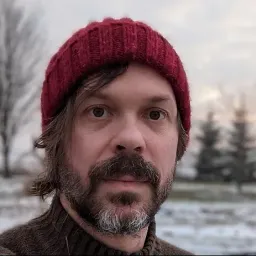Meghan L. Muldoon and Dominic Lapointe Title : Liminal potentialities in the Quartier de Spectacles, Montreal, Canada
My Session Status
by
Meghan L. Muldoon
and
Dominic Lapointe
Liminality, from the Latin limen meaning ‘threshold,’ was first described by van Gennep (1909) to describe those rites of passage present in every society that mark the transition between one state of being or identity to another, emergent state (Thomassen, 2009, 2010). The accustomed order of things becomes suspended, creating a state of chaos and uncertainty, but this fluidity and disorder is also productive of potentiality, leading to new identities, customs, or institutions (Andrews & Roberts, 2012; Thomassen, 2009, 2010; Turner, 1977; Underthin & Jordhus-Lier, 2018).
Of particular interest to tourism scholarship, is the consideration of the ways in which place may also be liminal (Andrews & Roberts, 2012; Lew, 2012; Meethan, 2012; Pritchard & Morgan, 2006; Underthun & Jordhus-Lier, 2018). Current conceptualizations of place recognize that it does not merely exist as a physical reality but is also socially constructed and imbued with meaning and value (Jaimangal-Jones, Pritchard, & Morgan, 2010; Meethan, 2012). The meaning of a particular place changes over time, and the ways in which people understand place naturalize and reinforce socio-cultural norms and hierarchies (Pritchard & Morgan, 2006).
In the summer of 2019, the two authors, one local and one international, sought to uncover liminal constructions of place centered around the Quartier des Spectacles in Montreal, Canada. Recently reconstituted as a touristic space of artistic and touristic pageantry in the heart of Montreal, the territorial space in question has possessed many identities over the years, including as a disenfranchised neighbourhood characterized by the sex trade and drug trafficking, as well as the ancestral home of the Haudenosaunee and Anishnabe people. Research took the form of a walking tour of the neighbourhood, in which one class of undergraduate students (N=38) piloted the self-guided tour throughout various points of interest and were tasked with recording their impressions, questions, reflections, and recorded images. This presentation will focus on the findings of this tour and what this methodology may permit us to learn about the liminal potentialities of a multi-layered touristic place.
References:
Andrews, H. & Roberts, L. (2012). Liminal landscapes: Travel, experience and spaces in-between. New York: Routledge.
Jaimangal-Jones, D., Pritchard, A., Morgan, N. (2010). Going the distance: Locating journey, liminality and rites of passage in dance music experiences. Leisure Studies, 29(3), p. 253-268.
Lew, A. (2012). Tourism incognita: Experiencing the liminal edge of destination places.Études caribéennes, 19.
Meethan, K. (2012). Walking the edges: Towards a visual ethnography of beachscapes. In Andrews & p. 69-86.
Pritchard, A. & Morgan, N. (2006). Hotel Babylon? Exploring hotels as liminal sites of transition and transgression. Tourism Management, 27, p. 762-772.
Szakolezai, A. (2009). Liminality and experience: Structuring transitory situations and transformative events. International Political Anthropology, 2(1), p. 141-172.
Thomassen, B. (2009). The uses and meanings of liminality. International Political Anthropology, 2(1), p. 5.
Thomassen, B. (2010). Revisiting liminality: The danger of empty spaces. In H. Andrews & L. Roberts (Eds.). Liminal landscapes: Travel, experience and spaces in-between(p. 21-35). New York: Routledge.
Turner, V.W. (1969, 1977). The ritual process: Structure and anti-structure. Ithaca, NY: Cornell University Press.
Turner, V.W. (1974). Dramas, fields, and metaphors: Symbolic action in human society.Ithaca, NY: Cornell University Press.
Underthun, A. & Jordhus-Lier, D.C. (2018). Liminality at work in Norwegian hotels. Tourism Geographies, 20(1), p. 11-28.
Van Gennep, A. (1960). The rites of passage. Chicago: Chicago University Press, (original publication 1909).

